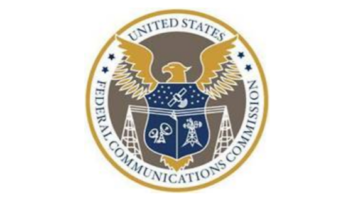My blood boiled when I read the statement by lobbyist David Honig (“Where’s the Social Justice in That?”) about his “great success story” in getting the 2007 advertising non-discrimination rule rules passed by the political hacks on the Federal Communications Commission.
The genesis of the rule was the claim by minority broadcasters that the advertising agencies were requiring “advertising contracts” that excluded urban and Hispanic stations from their buy. So the commission voted 5–0 to require stations to certify at renewal time that all of their “advertising contracts” contain a non-discrimination clause … thereby creating a rule that is impossible to comply with. Even by those same minority broadcasters. A classic case of shooting the victim.
I doubt that such No-Urban/No Hispanic “advertising contracts” ever existed, at least not in any form that most folks in our business would recognize as a “contract.” What those minority owners probably saw was the typical general e-mail from the agency buyer seeking “rate and avails” for a particular demographic, say, women 25 to 54 … in this case specifically excluding possible urban and Hispanic listeners. Any actual buy (most likely in a follow-up e-mail to the lucky stations) would have just specified stations, times and rates. Copy to follow from a download site.
So, a “discriminatory” advertising sales contract? When was that contract created? What were the terms of that contract? Did the AC or country station with strong 25-to-54 female numbers “discriminate” by replying to that “discriminatory” “request for bid” e-mailed by the advertising agency? Welcome to first-year contracts law.
The commission, and their staff, drafted what they probably thought was a simple rule. Just have the attorney for the station and the attorney for the advertiser/agency include a statement in their written contract for advertising time that the “station does not discriminate” in the sale of time. The stations can certify to this at renewal time, and everyone can go back to doing business as usual. Well, renewal time for radio rolled around last spring, and someone on staff figured this might still prove to be a problem. So the rule was revised to apply to those contracts created after March 2011.
My stations were first up, renewal application due June 1, 2011. Even over three months, even with a lawyer in the back room (me), we’ve found it almost impossible to comply with this asinine rule. Problem No. 1: What written contracts?
Let’s return to my example. What agencies do is discriminate. They have a limited pool of money from their client, and instructions to spend that money wisely to reach the best prospects for that client’s business. As dictated by the client. The agencies have many resources they can rely upon to design an advertising campaign, including Arbitron and Nielsen for broadcast media. Incidentally, Arbitron apparently issues what one agency buyer called an “AA” book, which targets minority neighborhoods in bigger markets. Or the agency can just buy newspaper, direct mail and the Internet. No federal law requires them to buy radio or TV. Nor sign a written contract if they do. Few radio stations have the economic leverage to dictate any terms to an ad agency. All we can do is say “no” if they ask us for too low a rate, or too much in “added value.”
So the agencies communicate by e-mail. They ask for offers of air time, we respond with rate and avails, they buy. A contract is formed. Where does one put the “This station does not discriminate” disclaimer? We put it in the signature line of the AE’s e-mail. Is that going to be good enough? Who knows?
Agency business is — perhaps — only 25% of our sales. Most is local direct. We send out flyers for a Halloween promotion — $300, the store puts a contest box out for a station drawing, they get mentions as sponsors, and so many spots. Merchant sends back the flyer — “OK we’ll take it. Jones Candy.” Contract created? Yes. Offer and acceptance. So now our promotional flyers all need “This station doesn’t discriminate” on the bottom in 9 point type. It gets worse …
Last week the local high school girls basketball team made the district finals. We have only a few days to sell our broadcast, not enough time for a mailing. So the sales folks were on the phones pitching the game. “Sponsorship is $85, which includes — good, you’ll take it? Thanks. We’ll have our in-house lawyer go see your lawyer to draw up the contract, which must include the FCC required non-discrimination clause …”
Yea, right. One of the La-La land communications lawyers who writes a broadcast law blog suggested that stations should always use written contracts for advertising time sales. Perhaps he thinks the tooth fairy is going to make our bank payment next month as well.
Let’s go rummage through station files for those contracts that stations have little or no control over. Oh, I said most stations don’t have written contracts for sale of advertising time? How about this network affiliation agreement for ABC News? Hmm, station agrees to carry so many hourly newscasts including the network spots … Cincinnati Reds broadcast — carry pre-game, post-game, in case of rainout — and network spots. Barter agreement with TM for Hit Disc service — so many spots per week. They send us the boiler-plate contract, we sign, fax back.
Then there’s political. Jump through all the hoops, get a formal signed contract with candidate “A” (with the required language), you’re still not out of the woods. If you sell time to one local candidate, you must sell air time to his opponent. Even if Candidate “B” slips a check, schedule and CD under your front door one evening, a week before the election.
Several freeloaders, err, Democratic U.S. senators just floated a proposal to require TV stations to post the TV political file online. Even in TV, political season can get wild as campaigns rush to spend their money before the election. Just keeping up will require stations to have webmasters available 24 hours a day before the election. With spots available instantly from download sites, radio can get crazier. In a federal election, if the campaign gets the money to us, we pretty much have to run their spot. Whether the paperwork is complete or not.
From my files for the 2008 primary season: Here’s this standard NAB political agreement form, signed by campaign rep. Spot schedule, apparently came in just before the election by FedEx with check included; there’s a copy of the check. No non-discrimination language. That’s a problem. Oh, well, we can’t run this … not enough time to get the form back to them with the required language. Oh wait, it’s a federal candidate, we have to run it! Some guy with a funny name … Barack Something?
Indiana, Kentucky and Tennessee radio stations are next up in the renewal lottery, applications due in April, followed by Ohio and Michigan in June. Some of you will be saying, well, if there is no written contract, how can the commission get us for not having this language? We’ll just check “yes” on the renewal form, certifying all our contracts have this language, and forget about it. Or check “no” and explain. After all, the folks at the commission are reasonable. Just like those stations in the past who checked “no” because they were missing one quarter’s worth of issues reports? Reports that no one reads, or even ask about? Automatic $10,000 fine.
I would suggest contacting communications counsel, but I don’t think they have a clue either. Bottom line: Heads, the government wins, tails we lose.
Remember this in November.
Tom Taggart is an attorney at law and station owner in Marietta, Ohio.












